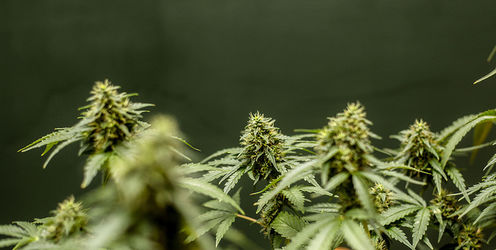
Queenslanders and Victorians with particular chronic illnesses may now be eligible to join New South Wales medicinal cannabis trials, due to start mid next year.
The three states will collaborate on the development of medicinal cannabis, its regulatory framework and clinical research to explore the safety and benefits of the product among three key groups:
- children with severe epilepsy who haven’t responded to traditional medicine
- adults with painful terminal illnesses
- cancer patients with severe nausea from chemotherapy.
This welcome move comes after many years of lobbying to reverse the embedded opposition to medicinal cannabis and recognises the product as a valid way of relieving the suffering caused by some distressing conditions.
So, how would such a scheme work in Australia? And what hurdles must first be overcome?
Countering the opposition
Some opposition to medicinal cannabis is based on a lack of understanding of the science of cannabis and emerging practices internationally. As cannabis has been illegal, there has been a shortage of pharmaceutical evidence of the kind usually accompanying the introduction of new treatments.
Many others oppose medicinal cannabis on irrational grounds, preferring to see any cannabis use as “immoral”, and have no interest in looking at the evidence.
Free and excessive use of cannabis certainly causes problems. This is especially true for young people using cannabis while their fore-brain is still developing, between the ages of 15 and 25. Heavy users drop out of education and lessen their intellectual capacity, curbing career options for life.
Hastened onset of psychosis occurs in the small number of users with a genetic predisposition. However, it is irrational to see this as a reason to reject medicinal cannabis when carefully planned processes to guard against these problems are under consideration in the three trial states.
What is medical cannabis?
Pain specialist and lecturer Michael Vagg recently wrote on The Conversation that medicinal cannabis was no more than treatment of patients with tetrahydrocannabinol (THC). THC is known to accelerate psychosis in people with certain genetic tendency to it.
This ignores mounting evidence that a second important component, cannabidiol (CBD), plays a critical role. It opposes the effects of THC on the brain’s endogenous cannabinoid receptor CB1.
Illicit “skunk” cannabis, currently favoured in Australia, does have a high content of THC and little or no CBD, responding to market demand from people seeking to feel “stoned” with heavy use.
“Hash” cannabis, however, has large amounts of CBD, frequently more than THC. Popular in London, it has been shown to have no association with psychosis. This indicates the ready possibility of providing a “safe” product.
CBD does not produce excitement of the kind experienced with high-dosage THC, but has a calming influence, relieves pain and has, in recent years, been shown to improve symptoms in people developing psychosis.
CBD is reportedly the key component in new strains of c.sativa, bred specifically to produce relief for intractable forms of juvenile epilepsy called Dravet or Lennox-Gastaut syndromes. Clinical trials with concentrates of CBD are in progress.
The case for medical cannabis
The pressing case is to provide relief for people suffering severe pain from inoperable cancer, who find the endless administration of morphine, to which they become addicted, as an intolerable way to end their lives.
A ten-year study from US states with medicinal cannabis programs showed there were many fewer deaths from overdose due to opioid drugs, used by distressed people seeking additional drugs for relief from interminable morphine treatment, than states without medicinal cannabis laws.
An objective trial of a cannabis derivative known as Sirtex, with equivalent content of THC and CBD, showed it to be effective in pain relief for such people. A large international multi-centre trial in cancer patients in currently in progress.
Although approved in the United Kingdom for pain relief in multiple sclerosis, Sirtex is costly, as are similar products used in Holland, Italy and now in Canada. If too costly, people will fall back on illicit cannabis.
How would an Australian scheme work?
The premiers of New South Wales, Queensland and Victoria support introducing medicinal cannabis, beginning with the trials.
My view is this should entail the provision of a regulated “cannabis” supply with ample content of CBD – equal or greater than that of THC – for cancer patients.
Development of a further preparation rich in CBD with little or no THC will be necessary for patients in whom the THC content is a problem, although some THC affords welcome feelings of equanimity to many. CBD may be critical for neurological diseases.
Regulation under state laws will be required, with Commonwealth support to achieve compliance with its legislation.
Strains of c.sativa producing a high content of CBD, with negligible or absent THC, are already used by commercial providers internationally and are now marketed in the United States. Commonwealth support will be needed to import these strains.
Cannabis is a herb, not a conventional pharmaceutical agent. As an impure substance it is not appropriate for it to be assessed as a new drug by Therapeutic Goods Administration. So will not become a registered pharmaceutical product.
Medicinal cannabis will need to be a regulated substance available for use by people with designated medically approved conditions, with state legislation securing the oversight of use, marketing, production and manufacturing, subject to Commonwealth agreement under the Narcotic Substances Act. Such a structure already applies to opium to produce morphine.
David Penington does not work for, consult to, own shares in or receive funding from any company or organisation that would benefit from this article, and has no relevant affiliations.
